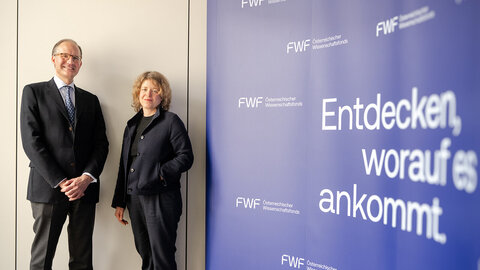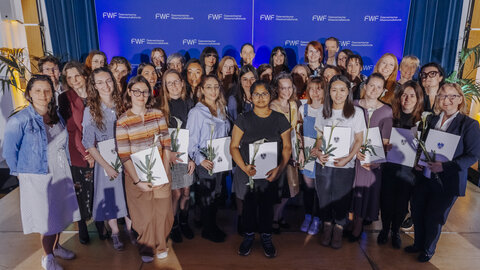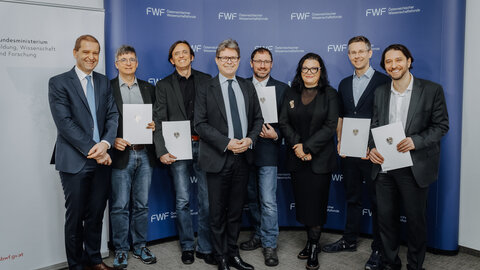Safety and Diversity in Research

Research institutions, academic institutions, and funding organizations should be safe, inclusive, and welcoming places where all members of the scientific community can thrive and succeed in research according to their abilities. Diversity supports creativity and problem-solving skills by exposing researchers to a broader range of perspectives and ideas. A welcoming research environment encourages innovation and attracts talent from underrepresented groups, and as a result, contributes to more excellence in research.
New guidelines for a non-discriminatory working environment
As declared in its values, the FWF is committed to supporting equal opportunities and diversity in research funding, and emphasizes in its grant agreements that research institutions have a responsibility to guarantee a workplace free from discrimination. In its role as a provider of third-party funding, the FWF is aware of the importance of a respectful working environment, and has published information on avoiding discrimination in its guidelines for a safe and diverse research culture. These guidelines are intended to inform, raise awareness, and make it clear that discrimination and sexual harassment have no place in a project funded by the FWF or in the working environment.
Women experience discrimination and sexual harassment more frequently
Studies have shown1 that overall, women are disproportionately more often affected by discrimination and sexual harassment. The effects of discrimination can be severe, including physical and psychological harm, economic insecurity, social isolation, and a loss of trust in institutions. In a survey conducted as part of the research project UniSAFE2 on gender-based violence at European universities and research institutions, a third (31%) of respondents stated that they had experienced sexual harassment. Women (66%) and non-binary individuals (74%) were more likely to have experienced at least one form of gender-based violence. Discrimination and sexual harassment are the result of a complex interplay of many factors, such as power imbalances, social attitudes, lack of consequences, fear of disadvantages and retaliation, as well as a lack of awareness and education.
The new FWF guidelines are a first step towards supporting an inclusive and respectful research community. Working together, we can ensure that the professional research environment is free from discrimination and harassment and that each individual can develop to their full potential.
1 Austrian Institute for Family Studies (2011) Statistics Austria (2021) See also (in German): https://www.statistik.at/statistiken/bevoelkerung-und-soziales/kriminalitaet-und-sicherheit/gewalt-gegen-frauen and zahlen_und_fakten-sexuellegewalt_03-2021.pdf and Daniel Schönherr, Bettina Leibetseder, Winfried Moser, Christoph Hofinger. (2019) and: Vienna Chamber of Labor (2018)
2 UniSAFE consortium (2022) UniSAFE D8.3 Policy Brief 1. Zenodo https://doi.org/10.5281/zenodo.7333222





